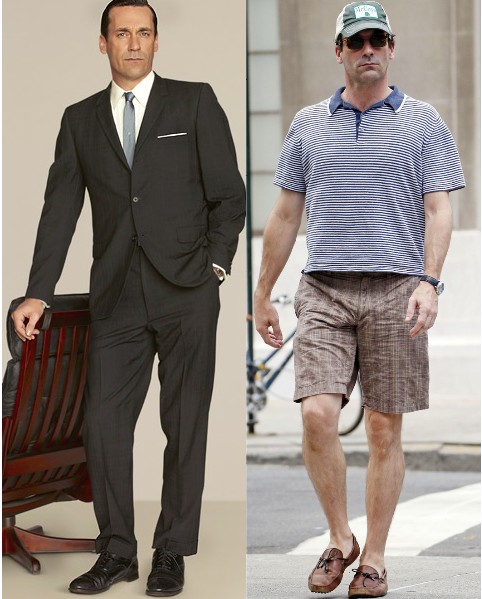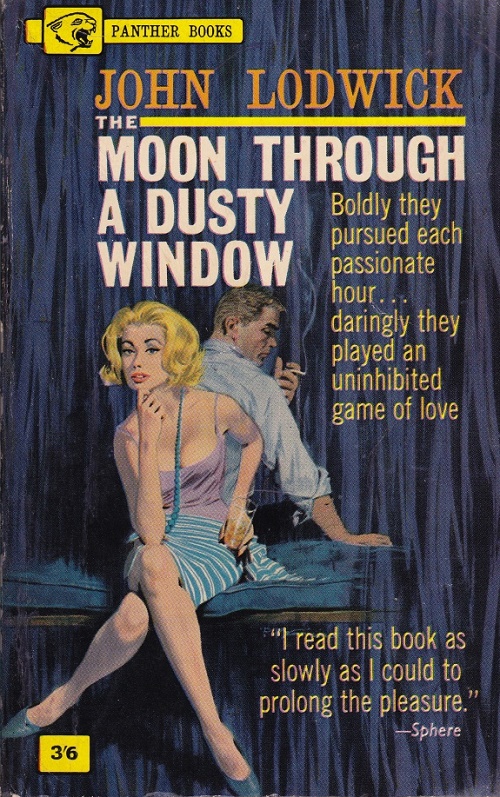In every cult, there are people who try to set their group aside from the rest of the population with language — in other words, creating a shorthand that only the initiates or insiders know, which (I guess) makes them feel superior to outsiders. Many times, this language is made up of abbreviations or (my particular bête noir) acronyms that create a level of inscrutability to the casual reader or onlooker and render the simplest of statements completely opaque to the uninitiated. (I’ll talk another time about academic language, which shuns abbreviation and acronym in favor of dense, elliptical words and phrases used as a shorthand among fellow academics and gives the users a veneer of erudition, usually false.)
The Mrs., who spent her entire life trying to undo the nonsense these people were spouting, referred to them as “mystics” — categorizing them as identical to the priests or priestesses at the various ancient oracles, who spoke in impenetrable riddles and then acted as translators of their allusions to the (paying) populace.
Until recently, the most egregious sinners were people in the information technology (IT) industry, with their MTBF (mean time between failures, a quality control — QA — measurement), AOP (aspect-oriented programming, which has no meaning to me at all), and so on. Go here, and if your eyes don’t start to bleed in a few seconds, you’re a better man than I am.
Don’t get me started on doctors, who have turned simple explanations of illness into jargon-ridden ur-Latinate Rosetta Stones of gobbledegook (e.g. a blood clot on the brain became a “cranial embolism”, a heart attack became a “myocardial infarction”, and so on). I’m sure it works just fine between doctors discussing a patient’s condition among themselves, but for us ordinary folks, it might as well be in Esperanto — which is probably the jargon’s intent: to make doctors sound wiser and more learned than non-medical people. (I can actually understand some of this bullshit better than most people only by dint of having studied Latin for over seven years.)
Incidentally, I am as guilty of this behavior as any of the above tools, because I am multilingual and often use foreign words or (especially Latin) abbreviations because to me, those expressions work better than their often-clumsy English equivalents. The German word Weltanschauung, for example, literally means “worldview” or “perspective on life”, but using it also gives a clue to its source, i.e. from Germanic philosophy. And I just used “i.e.” (id est, or, “that is [to say]”) in the previous sentence simply because I’ve always used the term and its use is universal, even though most people have no idea what the acronym stands for. I caught myself using Latin egregiously the other day, for instance, when I used the word sic (“thus”) twice in a row, but instead of leaving the thing alone, my brain translated the second sic into sic etiam (“also thus”) to show that there were two discrete applications involved. The philosopher Albert Jay Nock was probably the worst offender of this kind because his encyclopedic erudition caused him to scatter not only (Attic) Greek, Latin, French or German words throughout his writing, but sometimes entire paragraphs were written thus, probably because they described (in his mind) the situation or concept better than could be done in English, in the same way that most people use the Latin abbreviation “etc.” (et cetera, “and the rest”). Everybody knows, thought Nock, what it is that I’m describing, except of course that we don’t and have to rely on a translator to get his meaning. It’s ironic, of course, because while Nock’s philosophy has nigh-universal application, Nock aimed his writing purely at the Remnant, whom he assumed had equal erudition to his. (For an explanation of the Remnant, see Isaiah’s Job. Be careful: it may change your entire life, as it did both mine and that of The Mrs.)
I can only say I’ll try to do better, but I can make no promises.
All this pales into insignificance by comparison to people who toss off expressions like “This beta orbiter tried to neg the AMOG in front of the SHB to increase his SMV.” Allow me to translate: “This weakling who hangs around pretty women trying to curry favor with them tried to cut down a charismatic man in front of a beautiful woman, in order to make himself more attractive to her.” (AMOG = Alpha Male Of [the] Group or Alpha Male Other Guy, SHB = Smokin’ Hot Babe [sometimes V(very)H(ot)B(abe), and SMV = Sexual Market Value.)
I speak here, of course, of the PUA (pick-up artist) community, in which the High Priests have created this entire glossary of acronyms to show that, yes, they are the gate-keepers of knowledge which, if you buy their training manuals or pay to attend their seminars, you too, Mr. Sad Beta Male, can unlock the secrets of access to SHB pudenda (Latin alert) and become a “notch collector” similar to these skilled exponents of the art.
It’s bad enough when used in a sentence, but when used graphically or in a chart to illustrate a concept or theory, it becomes completely opaque. Here’s a beauty which attempts to show the correlation between a woman’s looks and the likelihood of her being bitchy:
VHB10 -> BQ 0
HB9 -> BQ 0-1
HB8 -> BQ 1-2
PJ7 -> BQ 3-4
PJ6 -> BQ 5-7
PJ5 -> BQ 6-10
PJ4 -> BQ 4-10
UG3 -> BQ 1-8
UG2 -> BQ 1-4
UG1 -> BQ 0-3
VUG0 -> BQ 0-1
VHB = Very Hot Babe, HB = Hot Babe, PJ = Plain Jane, UG = Ugly Girl, VUG = Very Ugly Girl, and the numeric qualifiers 1-10 are the common delimiters on the Female Hotness Scale (FHS). BQ, by the way, is Bitchiness Quotient, and the numeric qualifiers there are the levels thereof.
Note that this is presented as a scientific analysis or model, when in fact it’s no such thing: it’s a creation solely of the writer’s observation or theory and not supported by actual, you know, data — but creating acronyms gives it quasi-scientific gravitas — damn it, another Latin word, but you know what I mean, right? It’s kind of a pity, because the author at Chateau Heartiste has an excellent way with the English language, when he’s not talking utter bullshit like the above. (Credit where it’s due, though: he also called Trump for the overwhelming electoral victory long before anyone else did, so he’s a more-insightful observer of trends than most mainstream media pundits.)
What amuses me is that most of these PUA aficionados (whoops, Spanish, thank God for Hemingway) are or were themselves Beta males at one point in their lives — true Alpha males don’t need a process to seduce women: it’s completely intuitive or subconscious behavior on their part.
None of this should be taken to mean that I’m being at all dismissive of these Millennial Mystics, by the way. In terms of scoring with the chicks, it’s far better (and cheaper) than plying your would-be conquests with booze, although I note that anecdotally at least, most pick-up artistry takes place in bars because a.) that’s where the younger women hang out and b.) pick-up techniques work better on drunken women, apparently, which kind of undercuts the whole ethos (damn, now it’s the Greeks’ turn; this is getting tricky). But the most amusing part of this whole PUA thing is that as more and more dweebs adopt the practices, the more women are starting to identify the techniques and throwing them back into the hapless would-be seducers’ faces.
But back to the mystics in general. I refuse to be swallowed up by their bullshit, nor do I allow myself to feel in any way inferior to their apparent greater knowledge. I once listened to some consultant describe a proposed change, and the description was filled with consultant-jargon — oh yes, they too have to impress clients with their insider language — and when he was done, I said, as succinctly as I could: “I didn’t understand a single thing you just said. Could you restate it, but in plain English this time?”
“Oh,” he stammered, “I simply meant that we need to streamline the process to shorten our product’s time-to-market.”
“You mean, the time between the thing’s production and its appearance on the retailer’s shelf?”
“Yes.”
“Then why didn’t you just say that, instead of having me waste all our time by getting you to explain it to me?”
Roger Moore put it best, I think: “The point of language is to communicate your thoughts in the shortest possible time and in the clearest possible way.” My corollary to that excellent sentiment is, “And if somebody is not doing that, he’s either pursuing a different agenda or has something he wishes to disguise.”
And finally, I should point out that Moore’s “clarity” does not equal “simplistic” (I nearly wrote simplisme, but you guys would have chased me from the room, and justifiably so).
Semper claritas should be your guiding principle.







